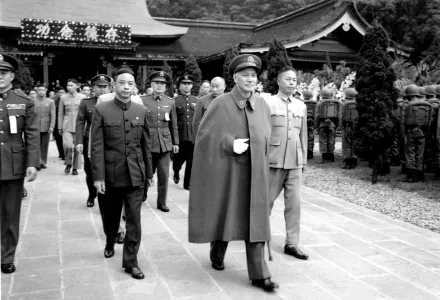International Security
International Security is America's leading peer-reviewed journal of security affairs.
International Security
Article
from
International Security

Summary
Leaders often believe that states that demonstrate disloyalty toward an ally will acquire a reputation for disloyalty, and thus damage other alliances. But in some circumstances, excessive loyalty to one ally can damage—perhaps even destroy—other alliances. The First Taiwan Strait Crisis (1954–55) shows that alliance interdependence is governed not by a reputation for loyalty, but by assessments of allied reliability.
Recommended citation
Iain D. Henry, "What Allies Want: Reconsidering Loyalty, Reliability, and Alliance Interdependence," International Security, Vol. 44, No. 4 (Spring 2020), pp. 45-83.
Up Next



